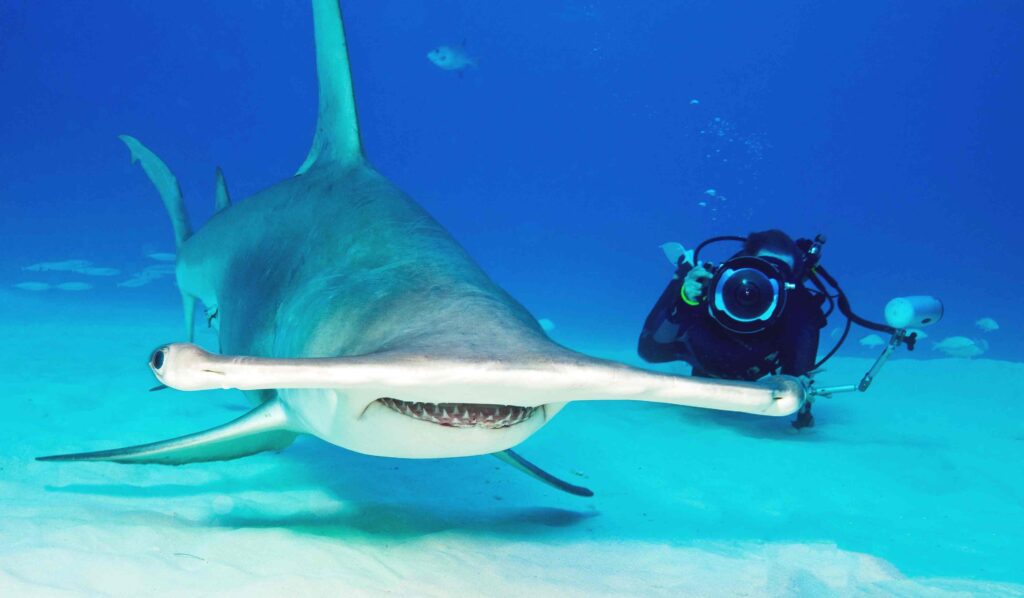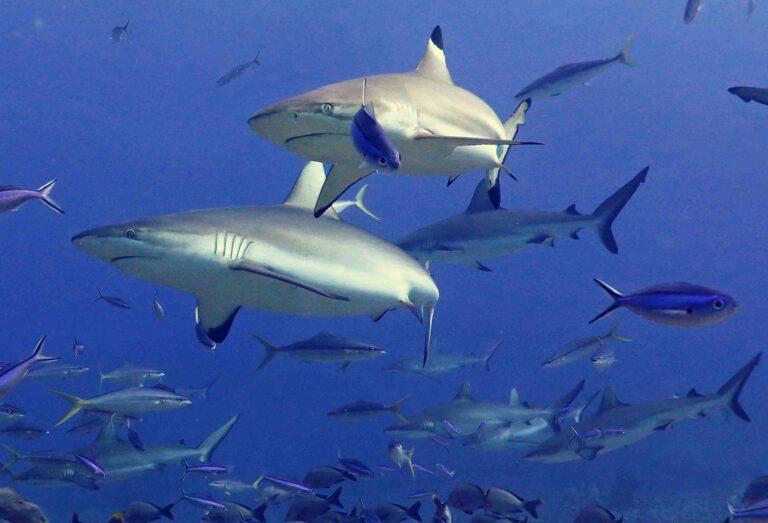As CoP27 was winding down in Egypt with disappointing results for the planet’s future, more positive news was emerging from Panama City, where the number of shark and ray species afforded CITES Appendix II protection has just more than doubled.
Representatives of governments around the world attending the 19th Convention on Trade of Endangered Species (CITES) of Wild Fauna & Flora meeting voted to add an unprecedented 60 threatened shark and ray species to the existing list of 51.
Also read: Booster shot for shark charity Bite-Back
With agreement to restrict international trade in all requiem sharks, one of the biggest families of species, as well as all hammerhead and guitar sharks, diver training agency PADI has been celebrating what it regards as a significant win for sharks – brought about with the assistance of concerned scuba divers.
Conference host Panama, which was advocating full shark protection, had invited PADI to provide specialist advice and research to all attending government representatives, in a bid to secure support for the critical votes. More than a third of all shark and ray species are classed as facing an increased risk of extinction, mainly through overfishing, habitat loss and unsustainable trade.
PADI says it was able to mobilise its global community of 128,000 PADI Professionals, 6,600 dive-centres and resorts and 29 million-plus certified PADI divers to influence the voting by petitioning governments to take positive action at CITES.
Fifteen countries including the UK and EU proposed to list 54 species of requiem sharks, and this was passed with 88 votes in favour, 29 against and 17 abstentions.
The EU, Brazil, Colombia, Ecuador and Panama proposed the six hammerhead species, passed unanimously; while Israel, Kenya, Panama and Senegal put forward the protection of all guitarfish, which was passed with 101 votes for, 14 against and 13 abstentions.

Japan had proposed to limit protection to only 19 of the most endangered species, while Peru had pushed to exclude the blue shark – but both saw their proposals rejected.
CITES works by controlling international trade in included species, with all import, export, re-export and introduction from the sea of these species requiring authorisation through a licensing system.
’Hope and optimism’
PADI told Divernet that people from 102 countries had signed its petitions. As well as individual divers they included no fewer than 14,789 PADI professionals and 452 dive-centres.
It also said that by making the economic case for dive-tourism revenue, its input had “significantly impacted“ votes for Venezuela, Fiji, the Bahamas and also Costa Rica, where 95% of PADI dive operators had signed a letter that was presented in person to the CITES delegation.
“The decision to restrict the unsustainable global trade in some of the most threatened species on the planet provides us all with a hope and optimism that we are not too late to end the dramatic declines in the ocean’s most iconic, and critical, animals,” commented PADI AWARE Foundation associate director of policy & campaigns Ian Campbell.
“The listing of requiem sharks, an iconic group of species that includes diver favourites such as the blacktip reef shark, bull shark and grey reef shark, sends a strong signal that healthy populations of these animals are economically important, far more so than just the trade in their harvested fins, meat and organs.”
Tourism sector studies have indicated that shark-based tourism is on track to generate more than US $750 million a year over the next decade, says PADI.
With the global Covid pandemic hitting the economies of island-nations such as Fiji, the Maldives and the Bahamas, it says that growth in shark tourism is likely to play a significant role in the financial recovery of those countries with healthy shark populations.
Popular dive-spots
“This result, to limit the international trade in shark species that are found at the world’s most popular dive-spots, will bring a huge economic boost to communities across the globe,” said PADI’s South America regional manager and technical adviser to the Panamanian government Julio Salvatori.
“The prospect of diving with sharks in their natural environment is a major attraction for the recreational dive sector, many of which made their concerns known to the decision-makers. We are optimistic that this can be a turning point for shark populations worldwide.”
“We commend the strong leadership and commitment to conservation shown by the government of Panama, supported by many others, to secure this much-needed trade restriction,” said Campbell.
“We also realise that this decision is only the start of the recovery for many shark species, and the revenue-generating recreational diving sector is primed to play its role in implementing the commitments made today.”
Protecting sharks is a core component of PADI’s Blueprint for Ocean Action, which aims to reduce the number of sharks and rays facing extinction by 25% in the next decade.
Also on Divernet: Hope For Makos And Rhino Rays, Shark Angel No 1, UK Shark-Fin Ban Confirmed

